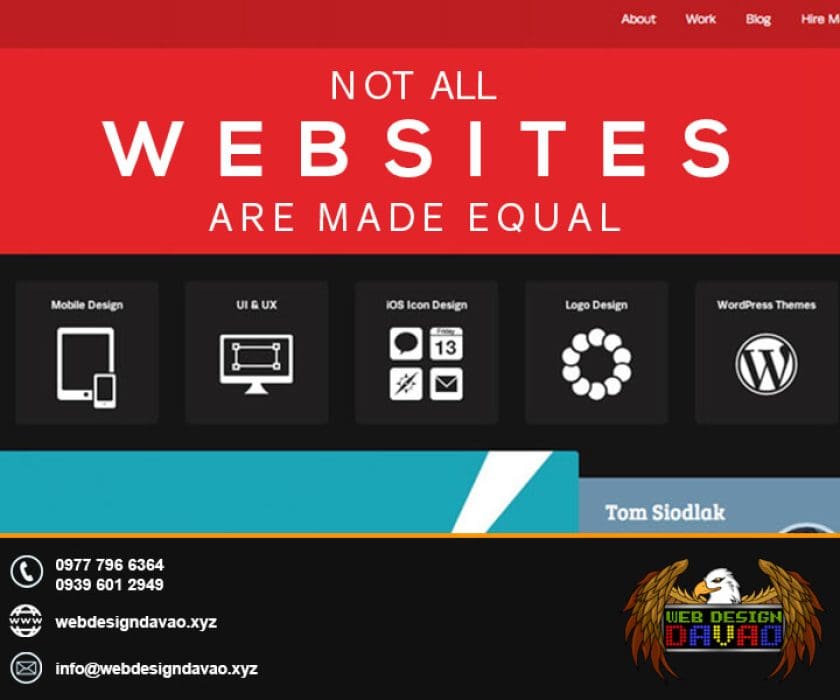When potential clients search “lawyer near me,” will they find your firm — or your
competitor’s?
In today’s digital-first world, your website is often your first impression. For Davao-based law firms, that
means your online presence is your new front desk — open 24/7 to potential clients seeking help,
advice, and trust.
At Web Design Davao, we’ve helped professional firms create SEO-optimised, credible websites that
don’t just look good — they convert visitors into consultations. Here’s how your firm can do the same.
1. Why Law Firms Need a Strong Online Presence
Legal services are built on trust, authority, and clarity — and your website should reflect those same
values.
A modern, secure, and easy-to-navigate site communicates credibility long before a client steps into
your office.
Fact: 76% of people search online before choosing a lawyer (Google Legal Trends, 2024).
Without a professional online presence, you’re invisible to the very clients who are looking for you right
now.
Pro Tip: Think of your website as your most persuasive legal assistant — one that works
24/7 without missing a lead.
2. Optimise for Local Search (So Davao Clients Can Find You)
Most law firm clients search locally. That means local SEO is critical to your firm’s success.
Optimise your Google visibility by:
- Claiming and verifying your Google Business Profile.
- Using location-specific keywords (e.g., Davao family lawyer, business attorney in Davao).
- Encouraging satisfied clients to leave Google reviews.
- Embedding Google Maps on your contact page.
Example: A Davao law office saw a 40% increase in consultation requests after optimising its local
SEO listings and adding location-focused blog posts.
Pro Tip: Consistency matters — make sure your business name, address, and phone
number are identical everywhere online.
3. Design That Builds Credibility and Confidence
Your law firm’s website should make visitors feel instantly reassured. Clean design, professional photos,
and clear navigation signal trust and professionalism.
Key design features for legal websites:
- Professional colour palette (navy, grey, white).
- Photos of your lawyers — real faces build trust.
- Easy-to-find practice areas and contact information.
- Mobile responsiveness for clients browsing on phones.
Fact: Visitors decide in 0.5 seconds whether your firm feels trustworthy (Stanford Web Credibility
Research, 2024).
Pro Tip: Avoid stock photos of gavels and courtrooms — show your real team instead.
Authenticity wins trust.
4. Content That Educates and Establishes Authority
People don’t just want a lawyer — they want clarity. Use your website content to educate, not just
advertise.
Effective content includes:
- FAQs about common legal issues (e.g., “What to do after a car accident in Davao?”).
- Blog posts on relevant local laws or case updates.
- Clear, jargon-free service descriptions.
This builds your EEAT (Experience, Expertise, Authoritativeness, Trustworthiness) — helping you rank
higher and win more inquiries.
Insight from Our Team:
“In law, credibility is everything. Your website should make people feel safe, informed, and ready to contact you.” — Duarne Bernhagen, Founder of Web Design Davao
5. Turn Visitors into Clients with Conversion-Focused Design
Attracting traffic is just step one. The goal is to convert that traffic into leads.
Make it easy for visitors to contact you by:
- Placing call-to-action buttons (“Book a Consultation”) throughout the site.
- Adding simple contact and case inquiry forms.
- Using click-to-call buttons for mobile users.
- Offering free initial consultations to encourage action.
Fact: Firms that include lead capture forms see 2.7x more inquiries than those that don’t
(LawLytics, 2025).
Pro Tip: Don’t bury your contact details — every page should make reaching you
effortless.
6. Ensure Privacy, Security, and Compliance
Confidentiality is a core part of legal ethics — your website should reflect that.
Maintain client trust with:
- HTTPS encryption and SSL certificates.
- A visible privacy policy.
- Secure contact forms and data handling.
This not only protects your firm but also boosts your SEO — Google rewards secure websites with better
rankings.
Pro Tip: Add a simple privacy disclaimer to reassure clients that their submitted
information is secure.
7. Showcase Results and Testimonials
Social proof plays a major role in decision-making. Display authentic testimonials, awards, or successful
case outcomes to reinforce your authority.
Example placements:
- Homepage testimonial slider.
- Dedicated “Client Success Stories” page.
- Google Reviews widget integration.
Example: A Davao legal team increased conversion rates by 35% after adding client stories with real
names and outcomes.
Pro Tip: Always get written consent before publishing any client-related content or
testimonials.
8. Stay Consistent with SEO and Updates
SEO isn’t a one-time setup — it’s an ongoing process. Keep your site fresh and compliant by:
- Updating
content quarterly. - Monitoring rankings and traffic.
- Posting new legal guides or news monthly.
Fact: Law firm websites that update content regularly receive 67% more organic leads (HubSpot
Legal Insights, 2025).
Ready to Attract More Legal Clients Online?
Your next client is already searching online. Make sure they find your firm first.
Book a free website and SEO audit with Web Design Davao.
We’ll help you create a powerful online presence that builds trust, ranks locally, and turns visitors into
paying clients.
Contact Web Design Davao to get started today.
FAQs
- How can SEO help my law firm?
It boosts your visibility in local searches, helping potential clients find and contact you online. - How long before SEO shows results?
Typically within 3–6 months, depending on competition and consistency. - Can I manage SEO myself?
You can handle basics, but expert optimisation ensures faster and more sustainable results. - Does Web Design Davao specialise in legal websites?
Yes — we design and optimise websites specifically for professional service firms like law offices. - What’s included in your law firm SEO package?
Full SEO setup, Google Business Profile optimisation, content strategy, and ongoing performance
tracking.




